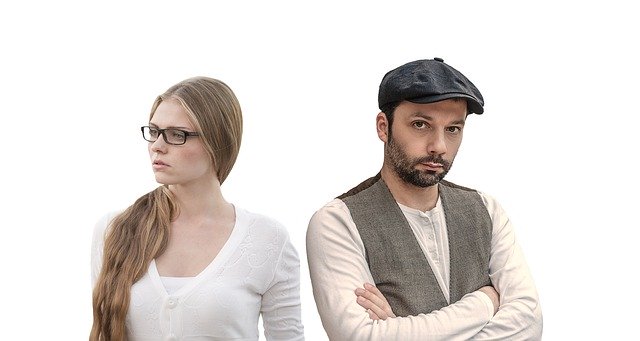In a previous post I discussed Rick Hanson’s ideas about the intrapersonal and interpersonal challenges facing couples working from home during the quarantine conditions brought on by the Coronavirus. In his podcast, Coping with Quarantine, Rick also explored strategies for couples to cope with these challenges. His suggested strategies focused strongly on connection, contribution, control (inner and outer) and compassion.
Strategies for couples to cope with the challenges of working together at home during social isolation
- Connection with others: the fundamental principle underpinning physical distancing is avoidance rather than contact and connection. However, this does not prevent us from connecting with each other as a couple, with our family and friends or with colleagues. All of the remote communication strategies are available to us – online video calls, telephone, social media and email. There can be a tendency to let the physical distancing principles impact the rest of our behaviour. However, now is the time to reconnect with others who are also feeling socially isolated. As a couple, connection can take the form of increased hugs, considerateness, words of love and appreciation and thoughtful touch – all of which builds the relationship. It also involves avoiding the temptation to escalate an argument or conflict to prove you are right or to assuage your pride. Fundamental to connection with your partner is listening for understanding, not interrupting but being open and vulnerable to the thoughts and feelings of your partner. As Rick points out, listening provides you with the time to deeply connect with the other person and enables them to experience calm and clarity. He reiterates Dan Siegel’s view that deep listening enables the communicator to “feel felt by the other person”.
- Connection to nature: we are connected to nature on multiple levels and it is possible through mindfulness practices, including mantra meditation, to experience this connection at a deep level. When we experience our deep connection to nature, we can feel inspired, energised, positive and calm. The very act of breathing and walking in nature regenerates our physical systems, clears our mind and helps us to reduce the power of our negative emotions. Nature has its own healing capacity which we can tap into in multiple ways – if only we would stop long enough to let it happen.
- Contribution: there are so many people in need as a result of the pandemic. There are also endless ways to contribute and help others, to draw on our creativity and resourcefulness. For example, despite the lockdown in the Northern Territory in Australia, Arnhem Land artists are offering a series of free online concerts to lift people’s spirits and reinforce their connection to the land and the resilience of nature. Thirty of Australia’s top singing stars have also collaborated to provide an online concert from their homes, Music From The Home Front, that is dedicated to people who are in the frontline of the fight against the Coronavirus. Another exemplar of contribution in adversity is Nkosi Johnson who was born with HIV in South Africa and died at the age of 12. In his short life, he dedicated himself to fighting, locally and globally, for the rights of HIV affected people in South Africa and beyond. Nkosi is quoted as saying, “Do all you can with what you have in the time you have in the place you are”.
- Controlling yourself and your environment: in times of crisis it is important to develop a sense of control over our difficult emotions and our immediate environment. There is a growing pool of advice on managing anxiety and achieving mental and emotional balance during these times of uncertainty and social isolation. In times of uncertainty we can achieve a sense of agency by controlling aspects of our immediate environment – whether that be tidying or renewing our garden, removing clutter from our workspace, developing new skills or getting our finances and accounts in order.
- Compassionate thoughts and action: in the section above on contribution, I stressed the importance of finding ways to help and to take compassionate action. However, action is not always possible because of our personal circumstances, including being confined to home as a high-risk person. This is particularly where loving kindness meditation can be used to experience compassion towards others who are suffering and/or experiencing grief. Everyday there are stories of individuals and families experiencing heart-breaking situations brought on by the Coronavirus. We can keep these people in our thoughts and prayers and feel with them.
Reflection
Creating connection, making a contribution, achieving self-control and control over our immediate environment and offering compassion and loving kindness are ways forward for individuals and couples restricted to working from home. Meditation, reflection and mindfulness practices will help us to grow in mindfulness and to develop the necessary self-awareness, awareness of others, self-regulation and presence of mind and body to bring these positive aspects into our lives as individuals and couples.
Chris James captures the essence of connection to nature in the songlet Tall Trees on his Enchant album:
Tall trees
Warm fire
Strong wind
Deep water
I feel it in my body
I feel it in my soul
Image by Andreas Danang Aprillianto from Pixabay
By Ron Passfield – Copyright (Creative Commons license, Attribution–Non Commercial–No Derivatives)
Disclosure: If you purchase a product through this site, I may earn a commission which will help to pay for the site, the associated Meetup group and the resources to support the blog.

